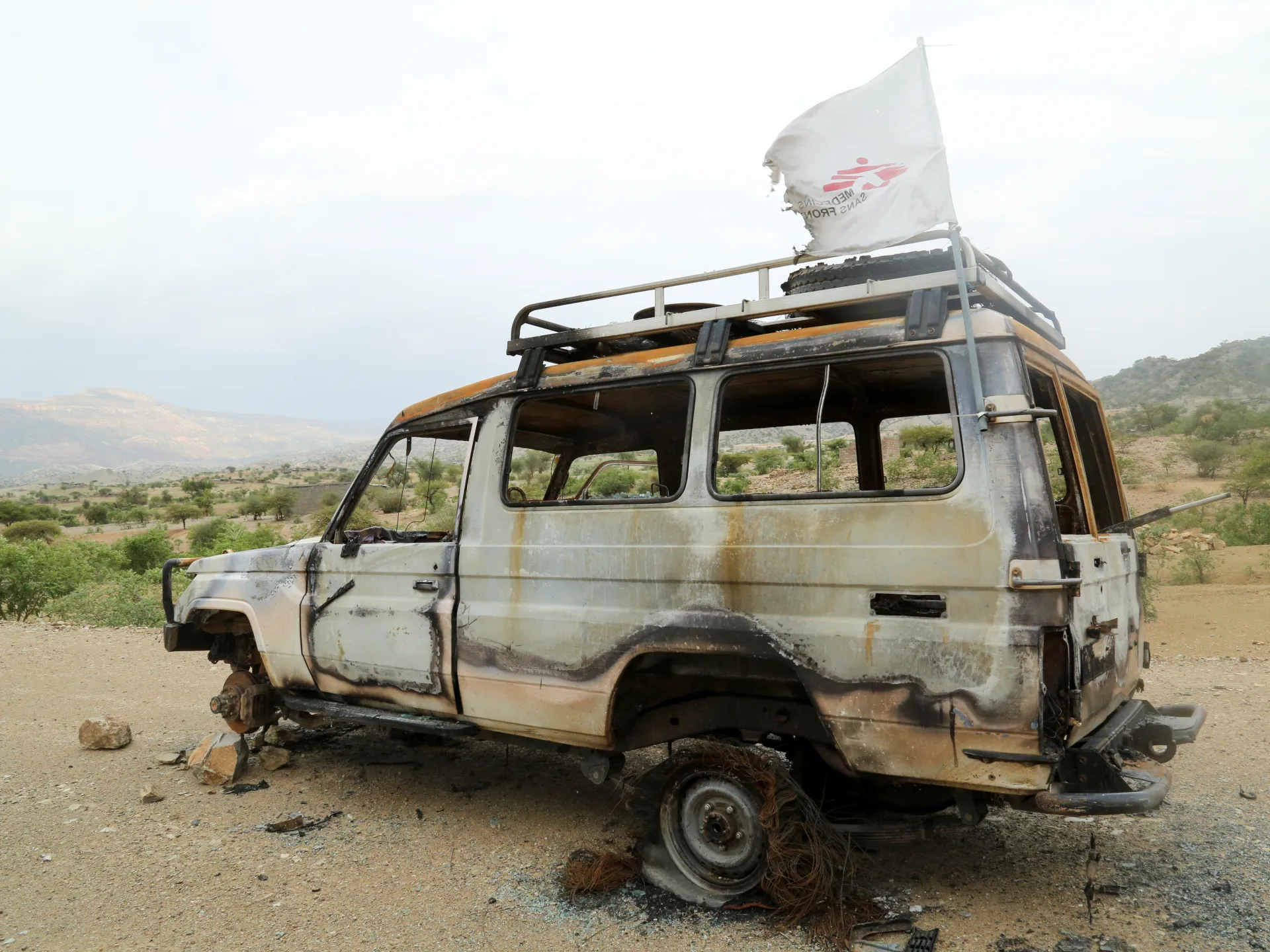Drone strikes in Ethiopia’s Tigray kill one amid fears of renewed conflict | Conflict News
The attack comes amid fears of a return to conflict following clashes between government troops and Tigrayan forces.
Published On 31 Jan 2026
One person has been killed and another injured in drone strikes in Ethiopia’s northern Tigray region, a senior Tigrayan official and a humanitarian worker said, in another sign of renewed conflict between regional and federal forces.
The Tigrayan official on Saturday said the drone strikes hit two Isuzu trucks near Enticho and Gendebta, two places in Tigray about 20km (12 miles) apart.
Recommended Stories
list of 4 itemsend of list
The official said the Ethiopian National Defence Force launched the strikes, but did not provide evidence.
A local humanitarian worker confirmed the strikes had happened. Both asked not to be named, the Reuters news agency reported.
It was not immediately clear what the trucks were carrying.
TPLF-affiliated news outlet Dimtsi Weyane posted pictures on Facebook that it said showed the trucks damaged in the strikes. It said the trucks were transporting food and cooking items.
Pro-government activists posting on social media said the trucks were carrying weapons.
Ethiopia’s national army fought fighters from the Tigray People’s Liberation Front (TPLF) for two years until late 2022, in a war researchers say killed hundreds of thousands through direct violence, the collapse of healthcare and famine.
Fighting broke out between regional and national forces in Tsemlet in the disputed territory of western Tigray earlier this week, an area claimed by forces from the neighbouring Amhara region.
Tension has been brewing over the presence of troops from Amhara and the neighbouring country of Eritrea in Tigray, violating a peace deal in November 2022 that ended the war.
Last year, the head of Tigray’s interim administration established by Addis Ababa was forced to flee Mekele, the regional capital, amid growing divisions within the TPLF, which controlled all of Ethiopia before being displaced by Prime Minister Abiy Ahmed.
Addis Ababa accuses the group of forging ties with neighbouring Eritrea and “actively preparing to wage war against Ethiopia”.
Earlier this week, national carrier Ethiopian Airlines cancelled flights to Tigray, where residents rushed to try to withdraw cash from banks.
The Tigray war ended in 2022, but disagreements have continued over a range of issues, including contested territories in western Tigray, and the delayed disarmament of Tigray forces.
The province is also suffering the effects of United States President Donald Trump’s funding cuts to the United States Agency for International Development (USAID) last year, which was once Ethiopia’s largest source of humanitarian aid.
Humanitarian organisations say up to 80 percent of the population is in need of emergency support, and funding shortfalls are placing a strain on the health system.
The African Union’s chairperson, Mahmoud Ali Youssouf, on Friday urged all parties to “exercise maximum restraint” and “resolve all outstanding issues through constructive dialogue”.
He emphasised the importance of preserving the “hard-won gains achieved under the AU-led Permanent Cessation of Hostilities Agreement (COHA)” signed in Pretoria in 2022.
